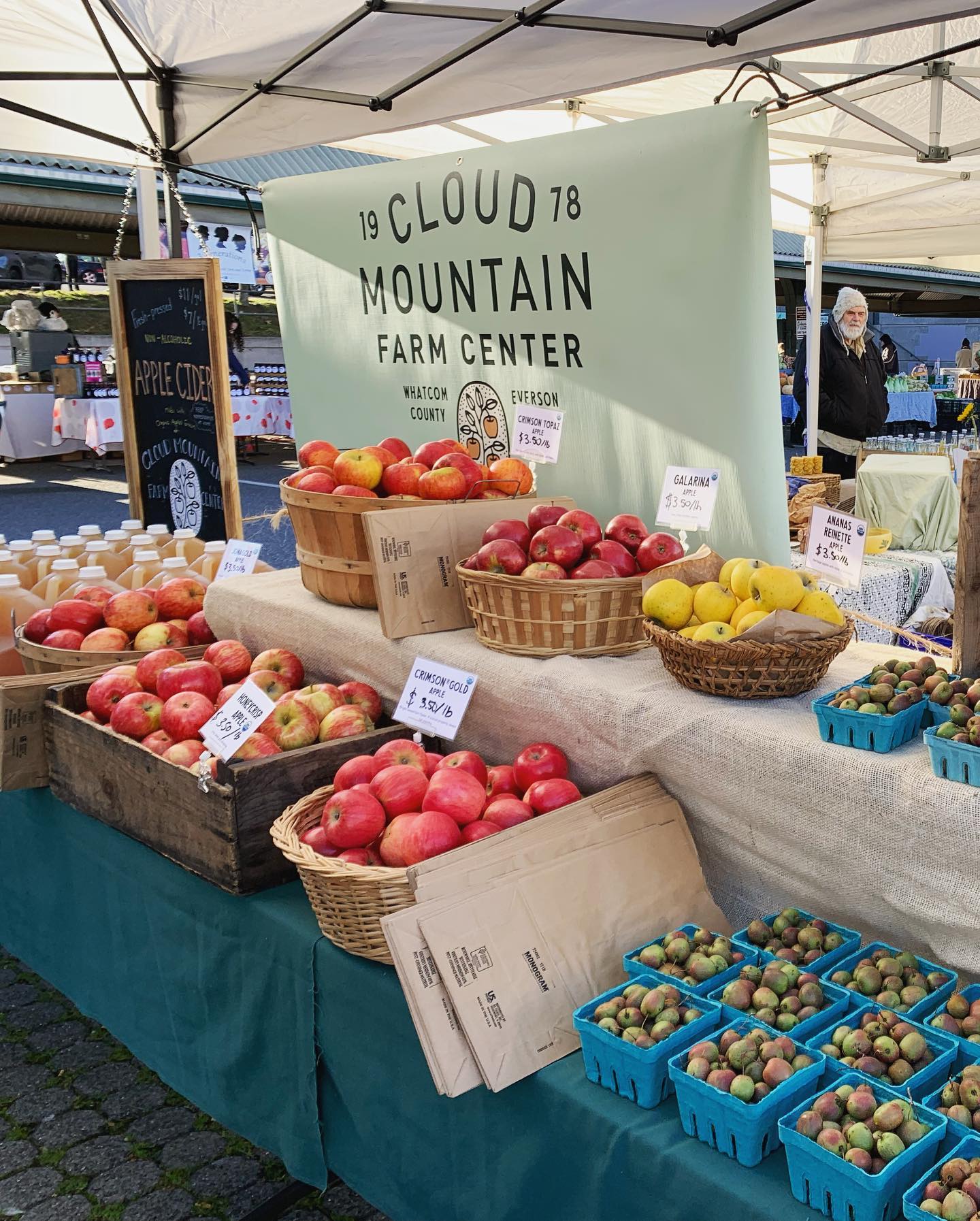
Dessert quality fruit if we’ve ever seen it!
Walk through a grocery’s fruit section and you’ll notice something – an abundance of beautiful, large, shiny fruit, just waiting for you to choose the best and brightest. There’s a reason for that. As consumers, we’re often drawn towards more aesthetically pleasing produce. We’re also often not aware of the realities of farming, especially small-scale organic farming, that affect whether a piece of fruit is able to be sold through groceries or farmers markets.
Cloud Mountain Farm Center grows over 150 varieties of fruit at the base of Sumas Mountain in Everson WA – plums, peaches, grapes, currants, apples, pears, and more. We’re known for unique flavors, climate-resilient varieties, and our organic practices. We’re proud to have transitioned the entire farm into organic production over the past couple of years. And while organic fruit is better for the environment, farm workers’ health, and our pollinator neighbors, it also results in quite a bit of fruit that can’t be sold as “dessert quality” (the term for the kinds of fruit you see for sale in your local grocery and farmers market).
Why is that? There are many standards a piece of fruit must meet before it’s deemed “dessert quality”, ranging from its aesthetic appeal, certain size parameters, and damage (bruising, skin blemishes, and insect damage). The Cloud Mountain fruit you see at farmers markets and grocers is dessert quality, but it’s just the tip of the iceberg when it comes to our fruit production.
So what happens to fruit that’s not dessert quality? We call that “seconds” fruit and “thirds” fruit. “Thirds” fruit is also referred to as “juice quality”. And luckily, we have a wide variety of partners who are passionate about seeing good fruit get into peoples’ kitchens, even if it’s imperfect.
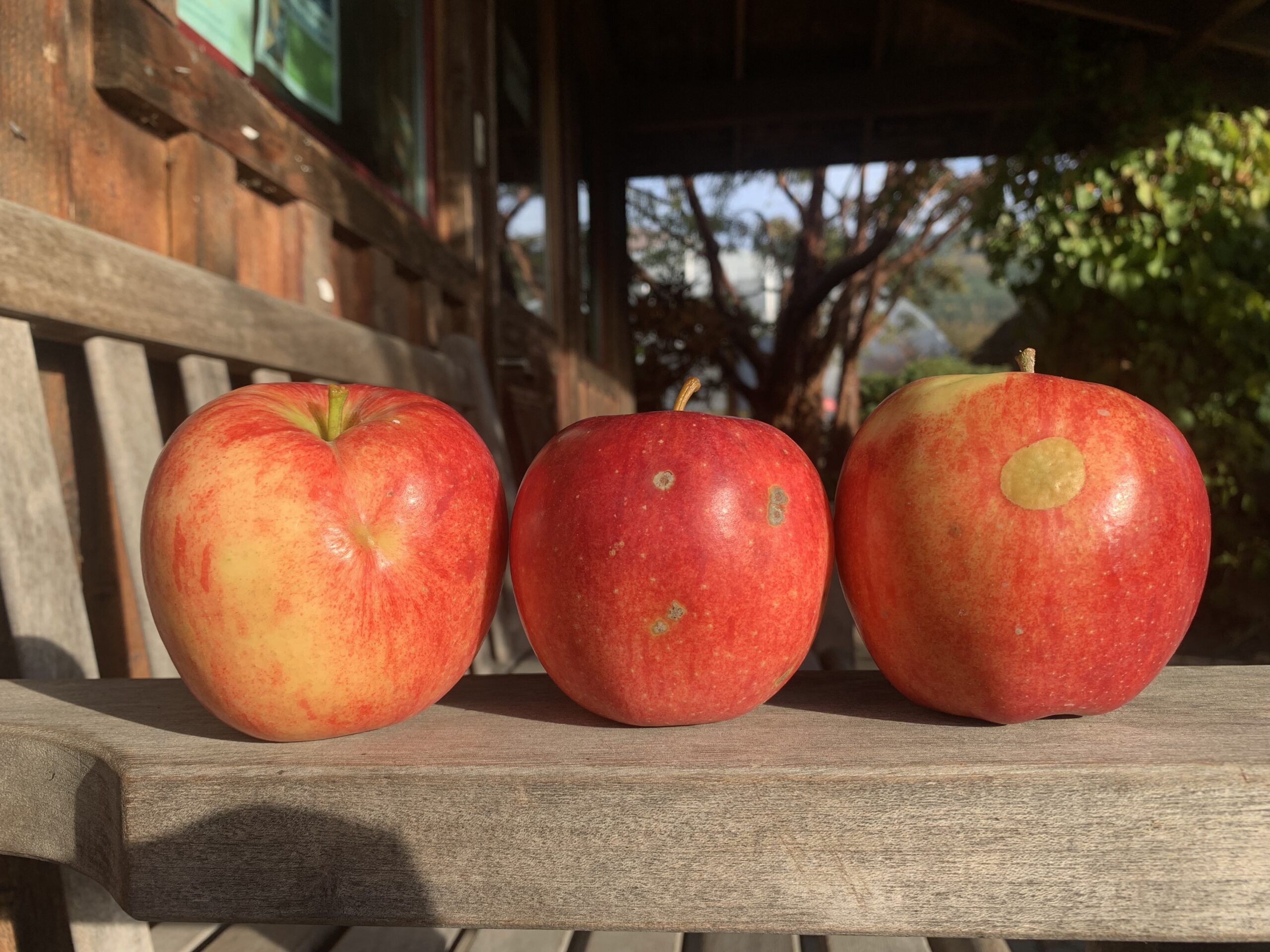
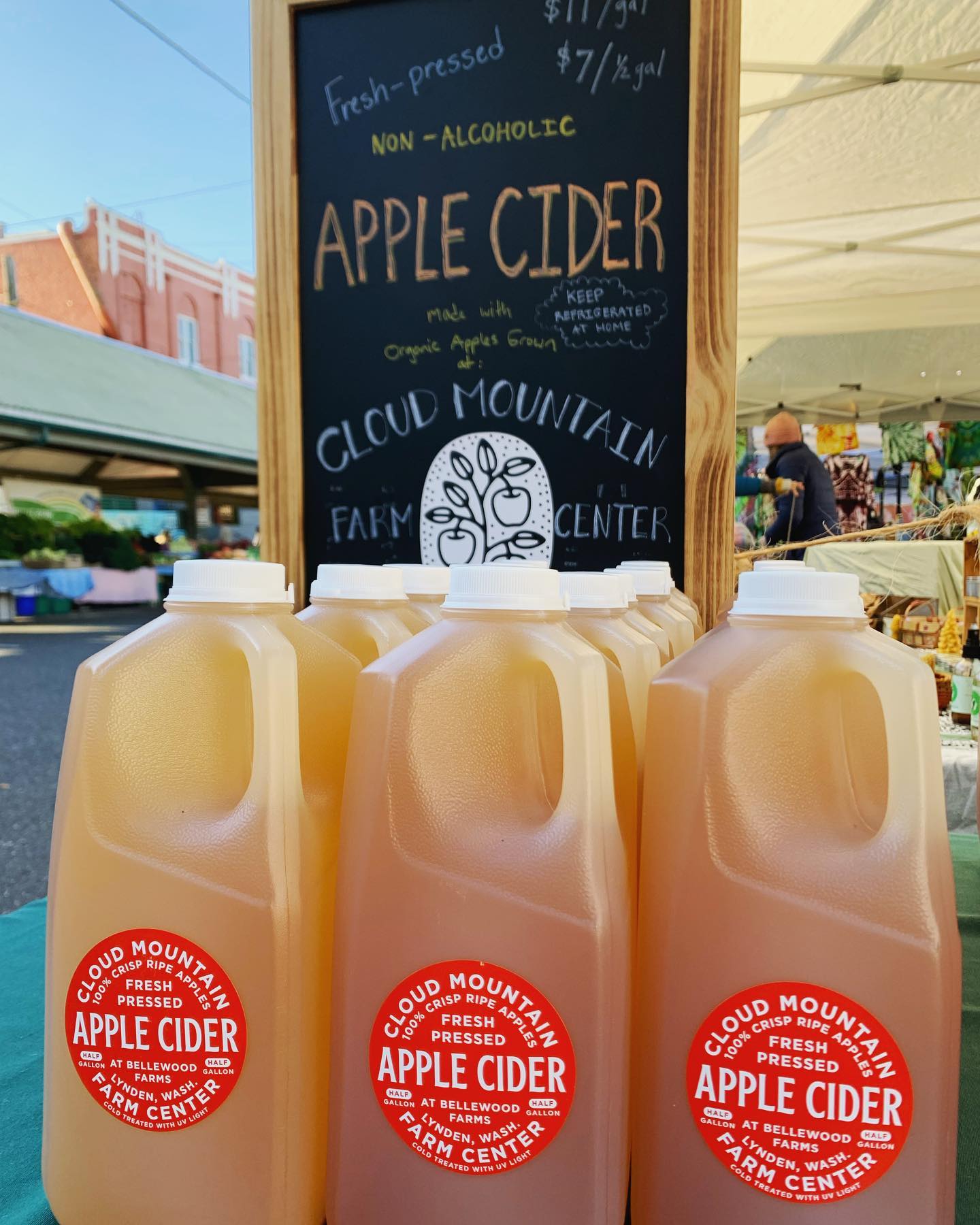
A huge portion of our seconds and thirds apples head to Bellewood Farms, where they’re pressed into our beloved cider. Certain local restaurants also see the benefit of finding a home for blemished fruit. Mallard Ice Cream in Bellingham transforms seconds quality fruit into creative ice cream flavors, and Bantam often uses imperfect produce in their delectable drink menu.
Our county neighbors, Barmann Cellars, take our juice quality pears for pressing and fermenting. They then make a co-ferment with their grapes. Their farming practices are inspired by biodynamic and regenerative principles, aiming to build soil and plant health in an ecologically conscious and sustainable way – using imperfect fruit is one part of their process.
And of course, some seconds fruit can be eaten for dessert, though they might not be officially “dessert quality.” As many of our customers know, ugly fruit isn’t bad fruit. Karmijn de Sonnaville apples have a beautiful texture, bright flavor, and just happen to also have some natural russeting. You might see one on a shelf and think Hmm, kinda ugly, probably isn’t that good – and you’d be missing out on one of our favorites! Apple and pear scab are common blemishes as well, and they don’t affect fruit quality, especially if you peel them.
There are so many ways to enjoy seconds and thirds quality fruit. Next time you enjoy a mug of our cider or perhaps even a scabby apple, know that you’re not just getting a delicious treat – you’re also helping to reduce food waste.
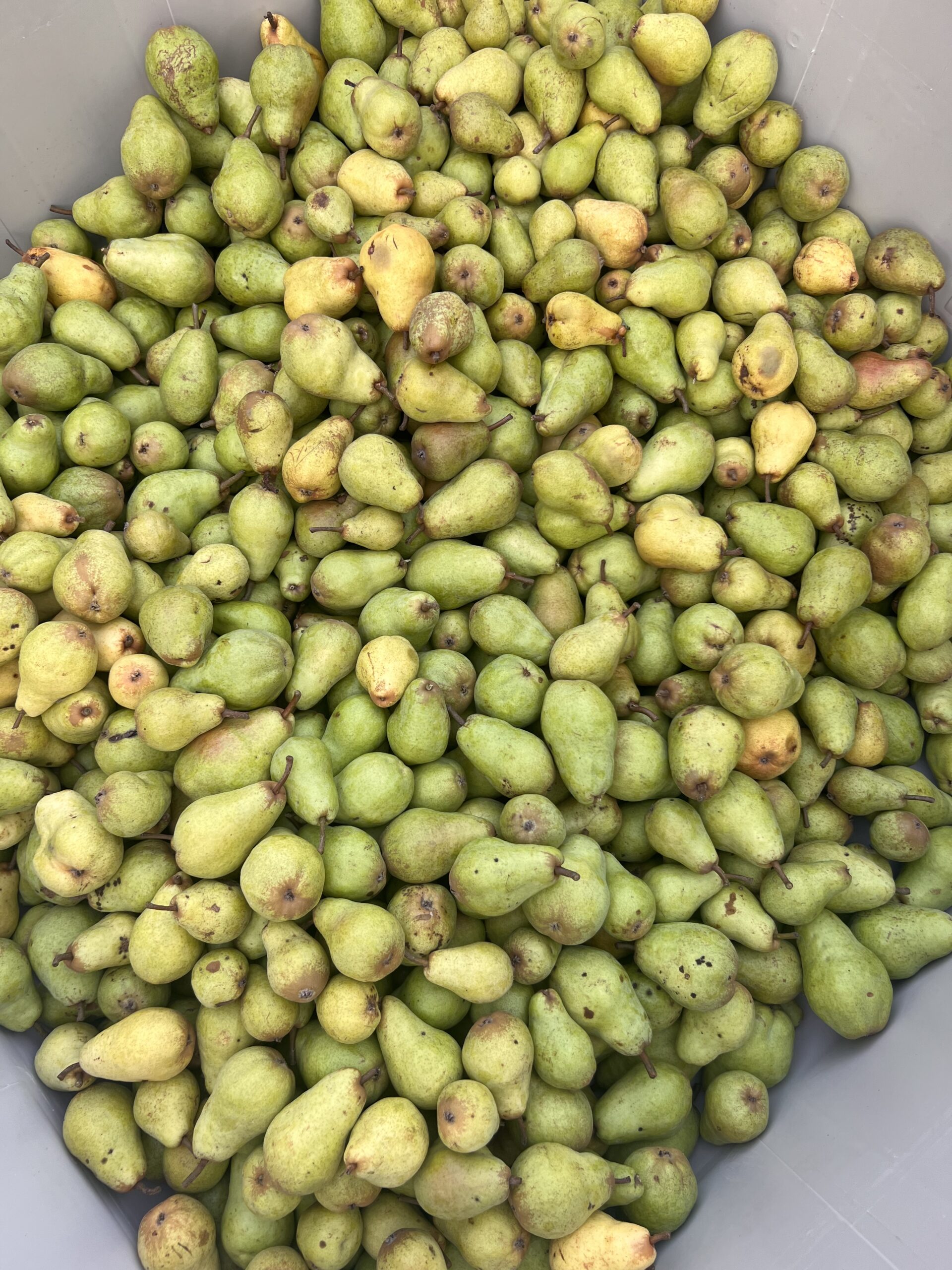
Pears getting ready for processing at Barmann Cellars
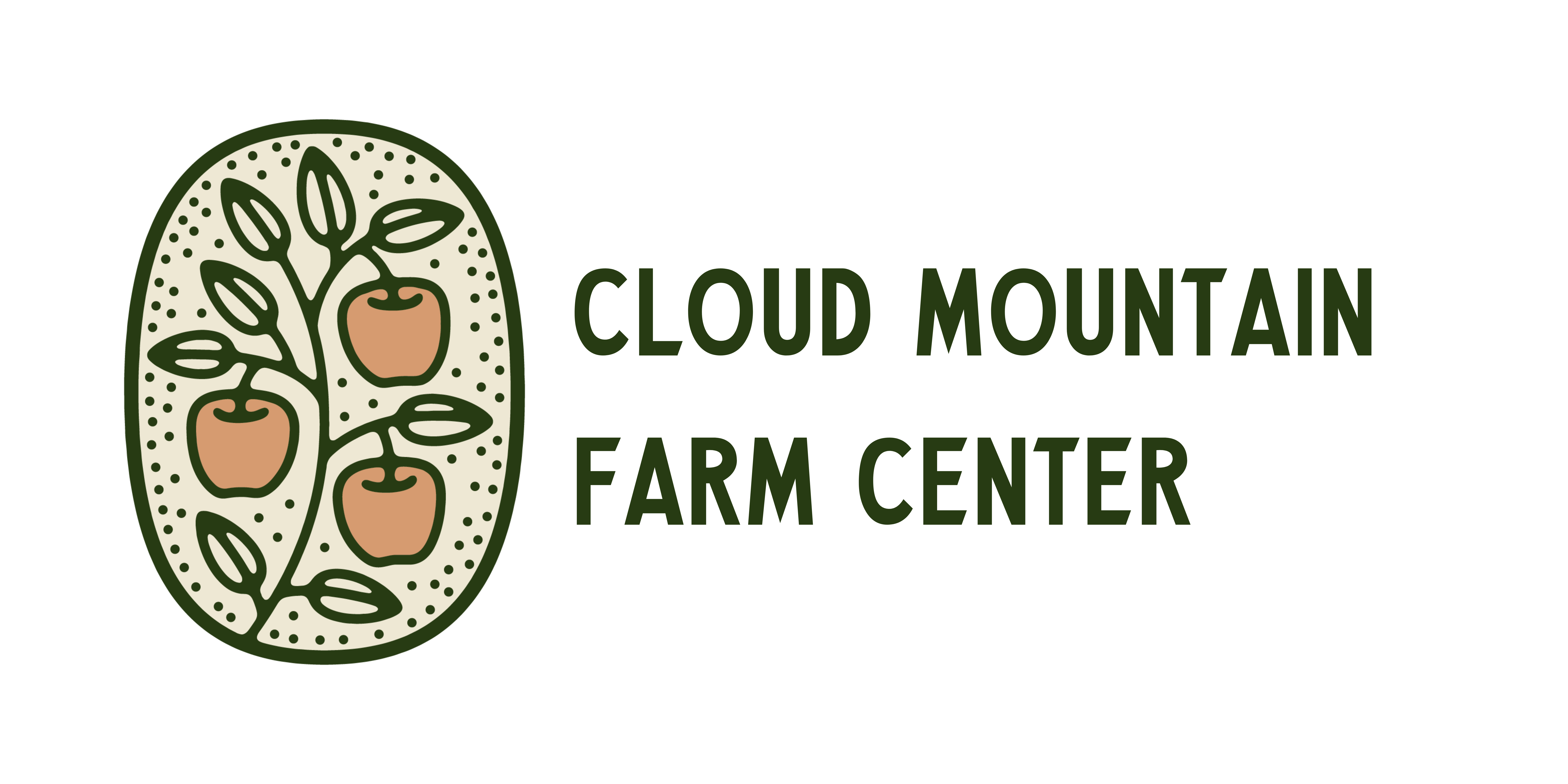

Do you ever have ugly fruit available in smaller quantities that an individual could process?
I can and have a cider press.
Thank you.
Hi Stuart,
We often have “seconds” quality fruit available in bulk (18 lb. and up) during the harvest season. This includes some heritage cider apple varieties! Please reach out to Maia Binhammer: maiab@cloudmountainfarmcenter.org